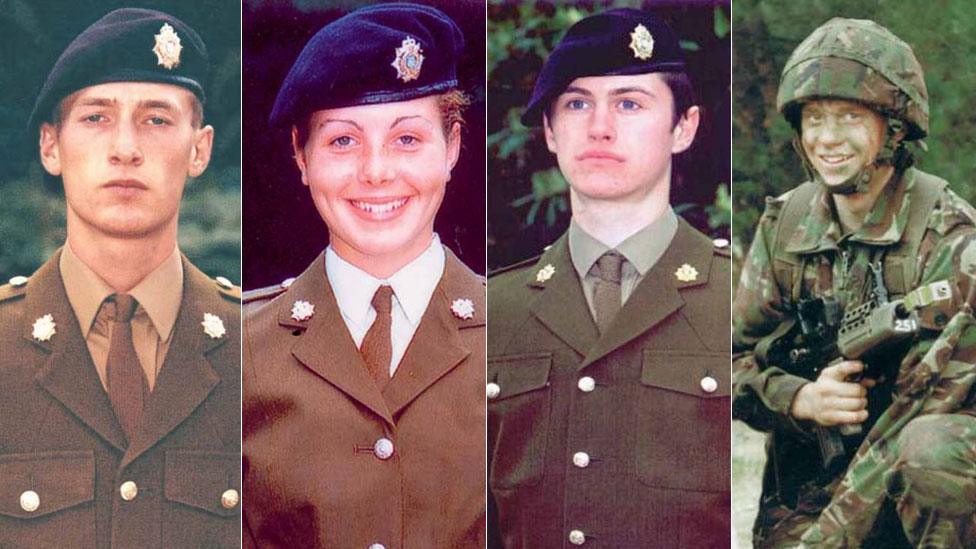'No interview' after Pte Cheryl James Deepcut death
- Published
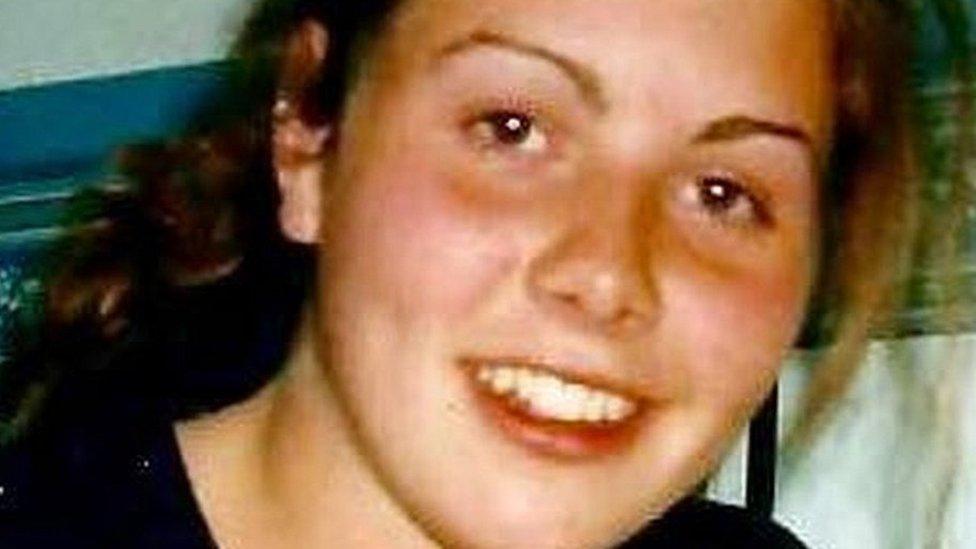
Pte Cheryl James was on guard duty at the time of her death in 1995
A former army instructor who spoke to a young soldier at Deepcut barracks moments before she died has said no-one interviewed him after her death.
Major Richard Rimmington told an inquest he had always wondered if he was the last person to see Pte Cheryl James alive at the Surrey barracks.
Pte James was on guard duty when he drove into the camp on 27 November 1995.
When asked if he saw anything notable about her, he said "not at all."
The 18-year-old from Llangollen in Denbighshire was one of four recruits to die at the base in seven years.
She was found dead with a bullet wound to the head.
Open verdict
Maj Rimmington told the hearing in Woking: "At the gate I saw one person, it was a female, a female in uniform doing guard duties.
"I showed her my ID card and probably said 'good morning how are you'."
He said a colleague arrived five minutes later to find the gate unmanned.
Maj Rimmington said he was surprised no-one came to talk to him about Pte James's death.
"After the initial inquest had concluded I thought they must not have needed me," he said.
An open verdict into Pte James's death was recorded in the first inquest into her death in December 1995. A second inquest is taking place after High Court judges quashed the findings.
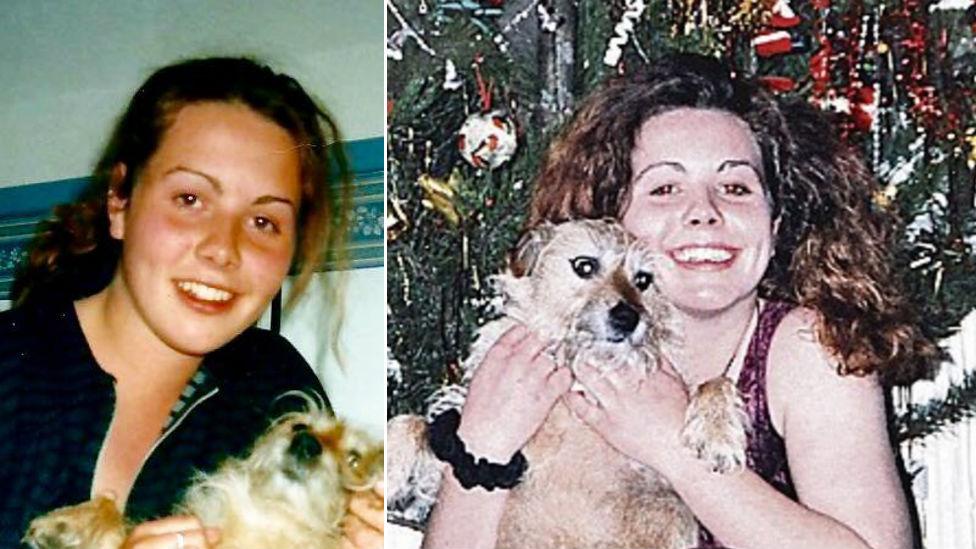
The inquest heard Pte Cheryl James was found in the foetal position with a weapon nearby
Paul Vernam, former Regimental Sergeant Major (RSM) at Deepcut, said he also saw Pte James at the gate and corrected her for not calling him "Sir" but that there was nothing unusual about her response.
"It was quite normal speech, I was in my car, I wasn't shouting at her or anything like that," he added.
Mr Vernam said he was shocked to be told Pte James had killed herself minutes later.
He said he did not know at the time that it was expressly against orders for females to go out on guard duty alone.
Alison Foster QC, representing Pte James's family, said: "There is...if a single female is on lone guard, an obvious opportunity for her to be overborne, would you agree?"
Mr Vernam answered: "Not really no, I would suggest that the soldiers when by themselves were in daylight and I don't see a threat in daylight hours."
Ms Foster asked: "If a woman is on her own and armed is she more vulnerable to an armed male intruder than a man, purely on physical strength?"
"Yes," Mr Vernam replied.
Bullet wound
Richard Simonds, a former Major at Deepcut, said he saw Pte James "lying in the woods" near the gate with two officers standing nearby, when he arrived for work.
"I said, 'Is she dead?' They said they didn't know."
He continued: "It was a female lying in foetal position with knees drawn up, lying on her right-hand side and there was a weapon lying very close to her.
"There was some blood around her head and a bullet wound to her forehead."
He told the inquest he checked for a pulse but there was "nothing at all".
"Once I found there was no pulse and she was beyond help it didn't seem dignified to do violent CPR or anything like that so we backed off," he said.
He added: "She was fully clothed and there was no sign of anyone trying to move her or cover her body, she was just lying there."
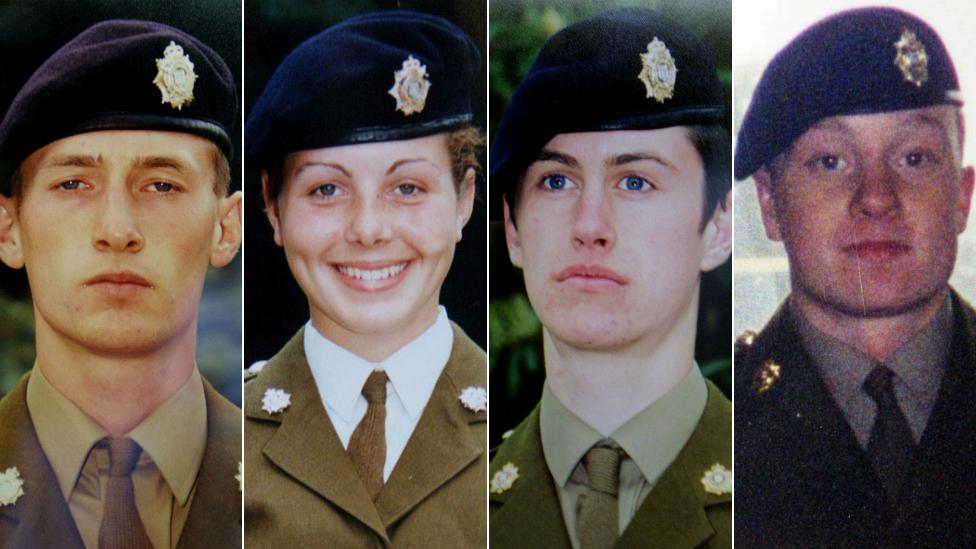
Privates Benton, James, Gray and Collinson died at Deepcut between 1995 and 2002
Who were the Deepcut four? Background to the deaths and timeline of events
Catherine Smith, a former nurse at Deepcut, said she thought the rifle lying beside Pte James's body "looked like it had been placed there".
In a statement, she said: "I could see the girl was dead as there was a large wound to her head and what appeared to be grey matter.
"The rifle was lying neatly alongside her body, it looked to me like it had been placed there, such was its position."
Surrey Police records of a call Mrs Smith made to the force in 2002 stated that she was "concerned nobody from the military spoke to her after the event" and was "not happy about the position of the body".
The inquest also heard extracts from a letter she wrote to a friend while posted at Leconfield Barracks but did not send.
In it Pte James listed 11 men she allegedly had sex with during her Army training, including "a corporal - he was married", a "sergeant on basic" and "a Marine".
She also gave details of a sexual encounter while she was on guard duty with another recruit.
The hearing continues.
- Published3 March 2016
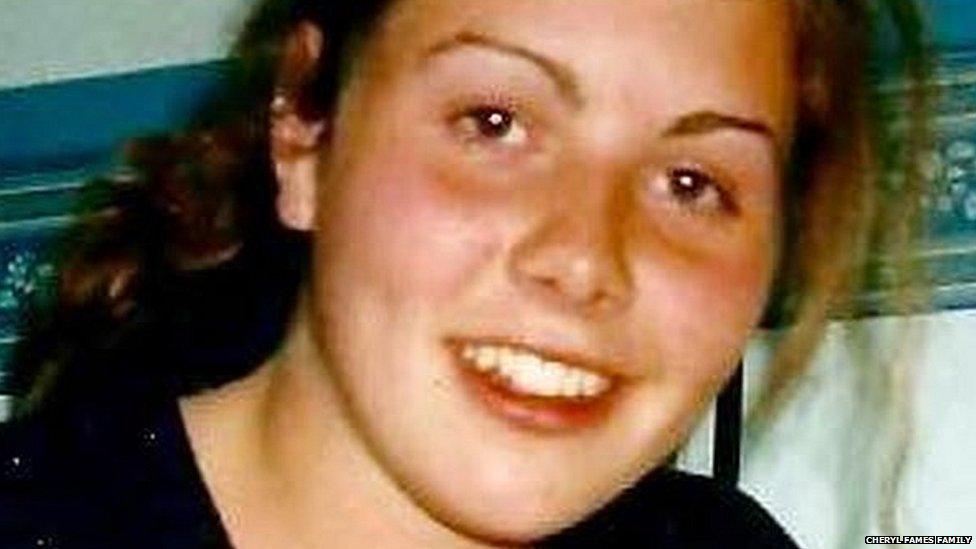
- Published2 March 2016

- Published1 March 2016

- Published29 February 2016

- Published20 June 2019
